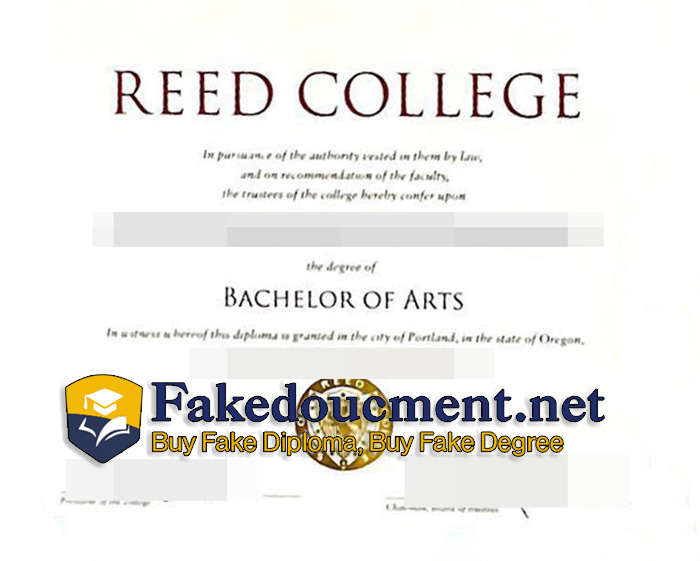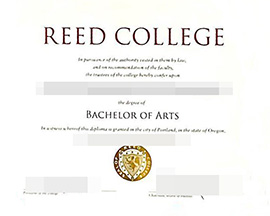
Where to order a realistic Reed College degree certificate online? Why people would like to buy a realistic Reed College diploma certificate online? Which site is best to buy a realistic Reed College degree certificate online?
Reed College is a private liberal arts college located in Portland, Oregon. Founded in 1908, it is known for its rigorous academics, strong emphasis on intellectual freedom, and commitment to undergraduate education. The college has a distinctive academic approach, featuring few required courses and an emphasis on independent study and research.
Reed is recognized for its diverse student body, vibrant campus culture, and commitment to social responsibility. The college offers a wide range of majors and has a strong reputation in the humanities, sciences, and social sciences. It is also known for its unique traditions, such as its annual Ian McBain Day, and for the Reed College library, which is a prominent resource for students.
Reed places a strong emphasis on nurturing critical thinking and analytical skills, fostering a sense of community among students and faculty. Admission is competitive, and the college values creativity, character, and intellectual curiosity in its applicants.
Reed has a mandatory first-year humanities program and requires a senior thesis. It features progressive politics, de-emphasis of grades, academic rigor, lack of grade inflation, and a high proportion of graduates who go on to earn doctorates and postgraduate degrees.
Reed alumni include 123 Fulbright Scholars, 73 Watson Fellows, and three Churchill Scholars. Its 32 Rhodes Scholars are the second-most for a liberal arts college. Reed is ranked fourth in the United States for the percentage of its graduates who earn a Ph.D., after Caltech, Harvey Mudd, and Swarthmore College.
The Reed Institute (the legal name of the college) was founded in 1908 and held its first classes in 1911. Reed is named for Oregon pioneers Simeon Gannett Reed (1830–1895) and Amanda Reed (died 1904). Simeon was an entrepreneur involved in several enterprises, including trade on the Willamette and Columbia Rivers with his close friend and associate, former Portland Mayor William S. Ladd (for whom Ladd’s Addition is named).
Unitarian minister Thomas Lamb Eliot, who knew the Reeds from the church choir, is credited with convincing Reed of the need for “a lasting legacy, a ‘Reed Institute of Lectures,’ and joked it would ‘need a mine to run it.'” Reed’s will suggested his wife could “devote some portion of my estate to benevolent objects, or to the cultivation, illustration, or development of the fine arts in the city of Portland, or to some other suitable purpose, which shall be of permanent value and contribute to the beauty of the city and to the intelligence, prosperity, and happiness of the inhabitants”.
Ladd’s son, William Mead Ladd, donated 40 acres from the Ladd Estate Company to build the new college. Reed’s first president (1910–1919) was William Trufant Foster, a former professor at Bates College and Bowdoin College in Maine. Prior to coming to Reed, Foster wrote that his ideal college would be one that “combats laziness, superficiality, dissipation, excessive indulgence in college life, by making the moral and intellectual requirements an honest, sustained, and adequate challenge to the best powers of the best American youth.”
Contrary to popular belief, the college did not grow out of student revolts and experimentation, but out of a desire to provide a “more flexible, individualized approach to a rigorous liberal arts education”. Founded explicitly in reaction to the “prevailing model of East Coast, Ivy League education”, the college’s lack of varsity athletics, fraternities, and exclusive social clubs– as well as its coeducational, nonsectarian, and egalitarian status—gave way to an intensely academic and intellectual college whose purpose was to devote itself to “the life of the mind”—the academic life— rather than a social or fraternal one.






